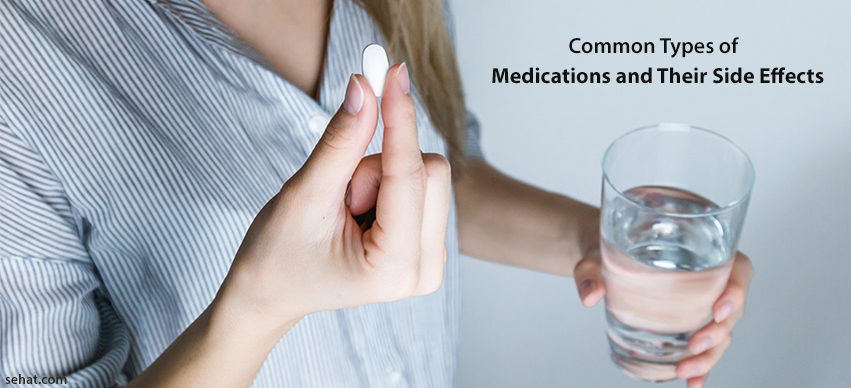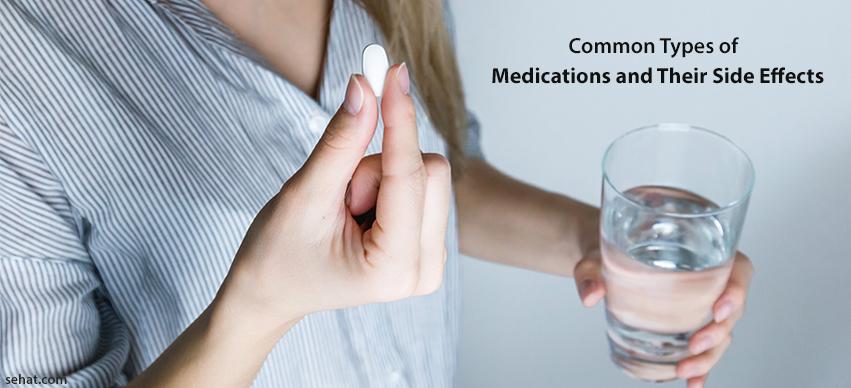How Communities Are Changing the Way We Think About Aging in..
8 Min Read


Whenever a person has prescribed a set of medicines for his/her condition, the first question they ask the doctor or search the internet for is regarding the possible side effects those medications may produce. Medicines are nothing but chemical substances with known biological effects on human beings used in treatment, prevention or diagnosis of disease or illness. This article will give you a list of common types of medications and their side effects and ways by which you can reduce those side effects.
Pharmacological drugs can be classified into various groups depending upon their sphere of action. Side effects or adverse effects of any drug are undesirable effects or outcome observed after taking a certain medication. Side effects can range from mild to severe.
Often, it so happens, that a person is allergic to a certain type of medication and is unaware of it. On consuming that medicine, he/she may develop an allergic reaction. Side effects can therefore be allergic or non-allergic.
In case of an allergic reaction towards any medicine, patients may experience the following signs and symptoms
The list mentioned below contains different groups of commonly used medications and their side effects
| Sr. No. | Type of Medication | Side effects |
| 1. | Non Steroidal Anti Inflammatory drugs (NSAIDs) Used for relief from pain | Pain in abdomen and hyperacidity are common side effects. Others include a headache, dizziness, high blood pressure and skin rashes. Long term use of NSAIDs may cause the formation of gastric ulcers and bleed in severe cases. |
| 2. | Antacids Used to treat hyperacidity | Long term use of antacids can cause dose-dependent rebound hyperacidity. Antacids containing aluminum hydroxide can cause constipation, anorexia and weakness. Antacids containing magnesium can cause diarrhea. s |
| 3. | Anti-helmintics Used to treat worm infestation | Abdominal pain, nausea, vomiting, dizziness, headache, and temporary hearing loss. |
| 4. | Antibiotics Used to treat bacterial infections | Abdominal pain, nausea, vomiting, bloating and indigestion, diarrhea and loss of appetite. |
| 5. | Anti-diarrheal | A feeling of uneasiness in stomach, fullness or bloating and constipation. |
| 6. | Anti-diabetic | The inappropriate dose of anti-diabetic medication can cause symptoms of low blood sugar such as weakness, dizziness, sweating, and loss of consciousness. Milder side effects include uneasiness in abdomen, nausea and vomiting, diarrhea, weight gain and swelling of legs and ankles. |
| 7. | Anti-emetics To relive or treat nausea and vomiting | There are various types of anti-emetic drugs. Some common side effects include dryness of mouth, grayish-brownish discoloration of tongue and stools, indigestion, constipation, dizziness and tinnitus, loss of appetite and restlessness. |
| 8. | Anti-histamine Agents To treat allergies | Dryness of mouth, blurred vision, dizziness, restlessness, nausea and vomiting, drowsiness and confusion. |
| 9. | Anti-hypertensive | Diarrhea or constipation, dizziness, cough and erectile dysfunction in males, headache and dizziness, nausea and vomiting, weight loss or weight gain. |
| 10. | Anti-pyretic Drugs To treat fever | Abdominal pain and increased sweating, nausea, vomiting and loss of appetite. |
| 11. | Anti-tussive Agents To treat a cough | Dizziness, drowsiness, nausea, and vomiting. |
| 12. | Contraceptives Medications used to prevent pregnancy | Headache, dizziness, abdominal fullness or pain, nausea and vomiting, menstrual irregularities, weight gain, and mood disturbances. |
| 13. | Decongestants To reduce nasal congestion or swelling | Insomnia, raised blood pressure, headache, confusion, restlessness, and dryness of mouth. |
| 14. | Electrolytes To treat conditions which cause electrolyte disturbances such as vomiting and diarrhea | Dizziness and confusion, rapid heartbeat, restlessness, swelling of feet and eyelids, high blood pressure, generalized weakness, muscle twitching. |
| 15. | Laxatives To promote bowel movements | Diarrhea, bloating, abdominal cramping, nausea and vomiting. |
| 16. | Muscle Relaxants To relax muscular spasms | Drowsiness and sleepiness, dizziness, headache, nausea and vomiting, low blood pressure and increased irritability. |
| 17. | Vaccines Agents which provide protection against certain infections | Pain, redness, itching and swelling at injection site. Mild fever, muscle ache and joint pain, headache and weakness. |
Most of the medicines mentioned above are easily available over-the-counter. Prolonged use of any kind of medicine in unmonitored doses is known to produce serious harmful effects on the vital organs of the body.
Some examples of adverse effects from prolonged use of medicines include stomach ulcers with bleeding from prolonged use of NSAIDs, unexplained bruising and bleeding from prolonged and high doses of paracetamol, seizures, and drowsiness from consuming a large amount of electrolyte replacement agents.
It is therefore necessary to consult a doctor in case of even a mild form of illness which may seem manageable. In order to keep side-effects at bay, a tailor-made prescription is always a safer option than self-medication. Each medication comes with its own set of side effects. Side effects are generally mild and do not require any specific management. If side effects or an allergic reaction to any medication is severe, it needs to be reported to the concerned doctor immediately.